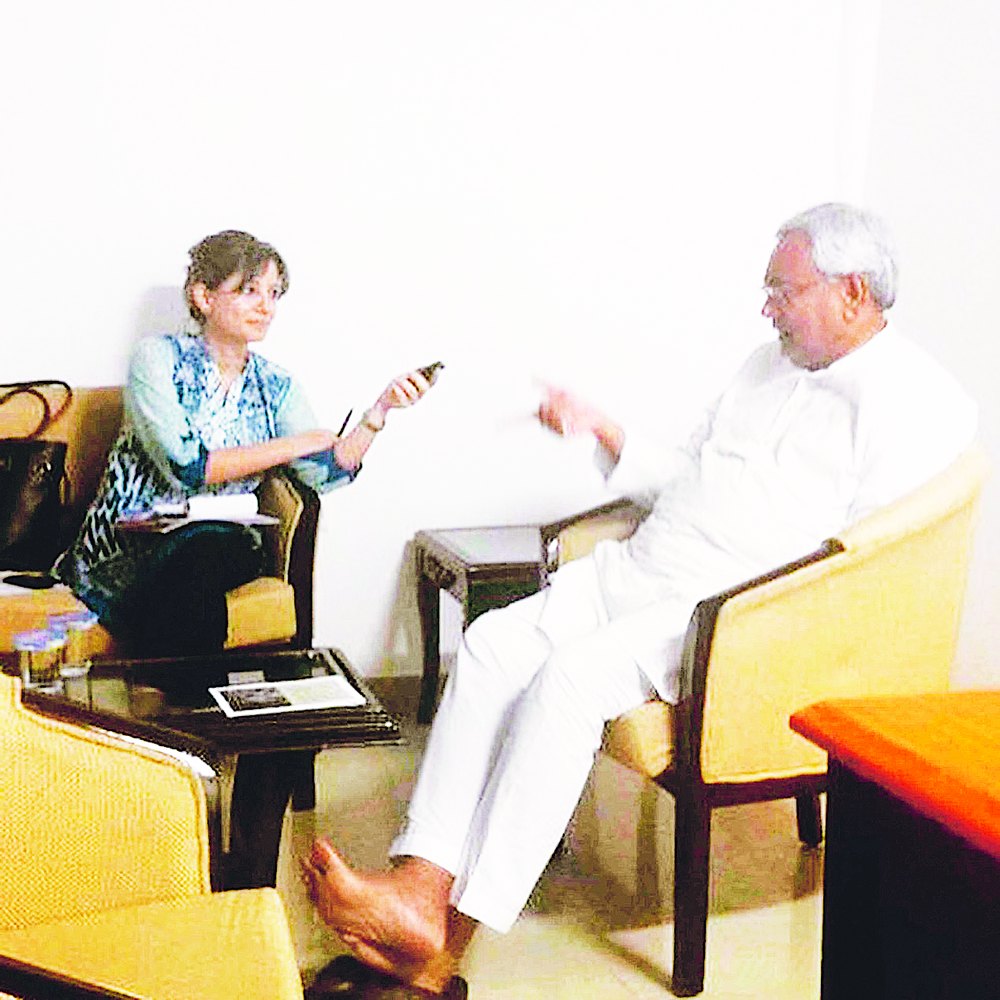
Patna, July 7: At a time when Nitish Kumar's 10-year rule in the state is set to be tested during the coming Assembly elections, Princeton University, US, has come out with a paper which has documented the positive changes ushered in Bihar during the JDU leader's stewardship.
The paper, "Modernising the state, connecting to the people: Bihar, India, 2005-2012", has been prepared under the innovations for successful societies (ISS) programme of the Woodrow Wilson School of Public and International Affairs and Bobst Centre for Peace and Justice. The two institutions are affiliated to Princeton University.
The paper has jointly been written by an independent US-based researcher Rushda Majeed and ISS programme associate director Pallavi Nuka. The paper has covered the period from the time when Nitish Kumar became chief minister in 2005 till the 2014 general election when the JDU fared poorly in Bihar. One can read the paper on http://successfulsocieties.princeton.edu/sites/successfulsocieties/files/RM_CivilService_Bihar_1.pdf.
Apart from documenting the challenges, which Nitish confronted after taking reign of the state, the paper has also narrated that how he ensured effective use of technology for improving the quality of governance and strengthen the delivery system for the sake of people of the state.
The paper mentions that how Nitish, an engineer, believed in the power of technology to improve governance.
Quoting the then Bihar chief secretary Anup Mukerji, now retired, the paper says that Nitish wanted to harness the potential of information communication technology to improve administration, financial management and service delivery for Bihar's citizens, particularly in the rural areas. "The paper was published last month and while writing it I also did extensive background research on Bihar and had follow-up conversations and interviews," Rushda, who is on a visit to Bihar at present, said on Tuesday. The 30-something woman, originally belongs to Allahabad in Uttar Pradesh, has done her masters in international affairs from Columbia University, New York.
Giving reasons for taking up Bihar for her research work even though she has her roots in Uttar Pradesh, Rushda said: "I have a Bihar connection as well, as my maternal grandmother's family is from Patna. Bihar always used to attract me - both as a research area and for personal reasons."
Rushda said she found people cooperative and they were willing to share the kind of details she was looking for. "Politicians and bureaucrats were willing to share details on how they had brought about the changes, and the challenges they faced."
Sharing reason for her current visit during which she is likely to stay in Patna for two weeks, Rushda said: "I am here to collect some facts and data on law and order situation in the state right now. I am collaborating in the field research part in Bihar for a book project on rule of law in some selected countries across the globe. It is for the Democracy and Rule of Law Programme of the Carnegie Endowment for International Peace, US."
The Carnegie Endowment for International Peace is an independent policy research writing and outreach centre. The book is likely to come out sometime in 2016.










